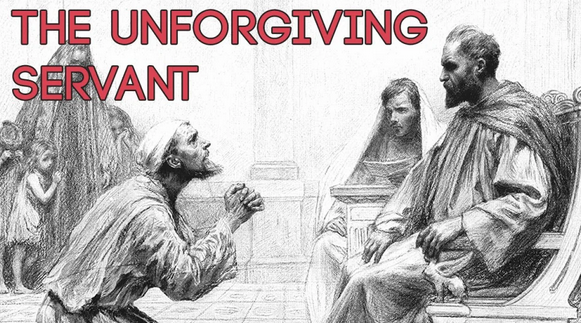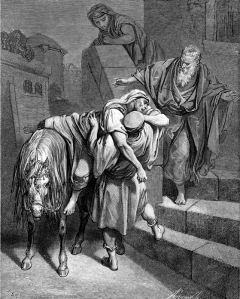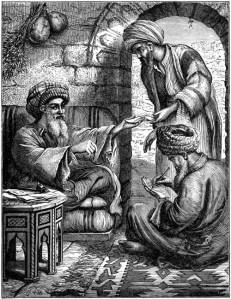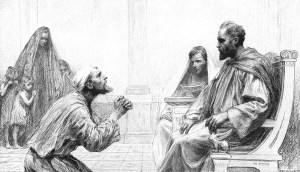Revelation
4 After this I looked, and behold, a door standing open in heaven! And the first voice, which I had heard speaking to me like a trumpet, said, “Come up here, and I will show you what must take place after this.” 2 At once I was in the Spirit, and behold, a throne stood in heaven, with one seated on the throne.
Three Faithful Witnesses, Called teachers of the Church
A Commentary on the Book of Revelation, by George Eldon Ladd:
After the first vision of the exalted Christ caring for and protecting his churches, the revelation of “what must take place after this,“ i.e the coming of God’s Kingdom, begins. This revelation will include the destruction of the powers of evil, of Satan, and death, but before these evil powers are destroyed, they will break forth in a final desperate effort to frustrate the purposes of God by destroying the people of God. However, the terrible conflict that takes place on earth, between the church and the demonic powers embodied in an apostate civilization…are in reality expressions in historical form of a fearful conflict in the spiritual world between the Kingdom of God and the kingdom of Satan.
John is caught up in a vision to heaven at 4:1…
Verse 2. John heard the voice which had already spoken to him (1:10), summoning him to come up hither to receive further revelations of future events. At once he was in the Spirit;…
There is no reference in 4:1 to the rapture of the church, the language is addressed exclusively to John and refers only to his reception of the revelation of this book.
“Straight way I was in the Spirit.”
The idea of prophetic rapture is widespread in Jewish literature. Micaiah told the king of Israel, “I saw the Lord sitting on the throne, and all the host of heaven…” Amos reports that God does nothing “without revealing his secret to his servants the prophets” (Amos 3:7). John views himself as a prophet (1:1), and being “in the Spirit”...There is no basis for discovering a rapture of the church…
—The New International Commentary on the New Testament, The Book of Revelation by Robert H. Mounce
The supposed rapture of the church is to be found nowhere, here, in The New International Greek Testament Commentary, The Book of Revelation, A Commentary on the Greek Text, by G. K. Beale
This invention of the human mind about the “church” not being on earth after Revelation 4:1 is based on a false, supposed ‘exegesis’ of that verse, and on a nonsensical point about the “trumpet” and an argument from silence leaning on the fact that the word ekklesia (church) is not used again until 22:16. But the saints are there throughout (e.g. 6:1; 7:3, 14, 17; 13:7f; 14:12f).
Addendum: From The New International Greek Testament Commentary, “The tribulations of 8:6-12 are executed…at all times during the church age..”
G. E. Ladd, noted evangelical Prof. of NT and Exegesis, Revelation: “…chapter seven pictured the fate of the church in this fearful period….the two multitudes, which picture the fate of the church in the time of tribulation….the plagues of divine wrath fall upon the rebellious…but…the church, which has been sealed with the protective seal of God, is somehow spared from the sufferings of those plagues.” [Think, the blood on the doorposts in Egypt.] “But the church in the tribulation will be the victim of persecution and martyrdom as she has been throughout her entire history.”
Against today’s subjectivism (‘what this verse means to me’), we must clearly declare, “knowing this first, that no prophecy of Scripture is a matter of one’s own interpretation” (2 Peter 1:20). READ (link)
We Christians need to maintain our integrity. Cast off sloth and hubris. Study and know God’s word in context: https://textsincontext.wordpress.com/2012/05/17/of-ponds-and-pitfalls/














